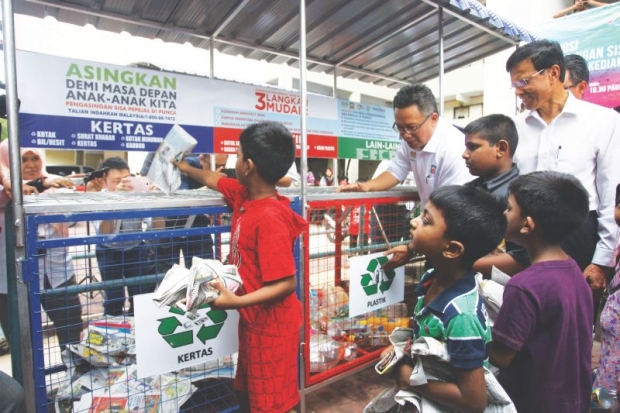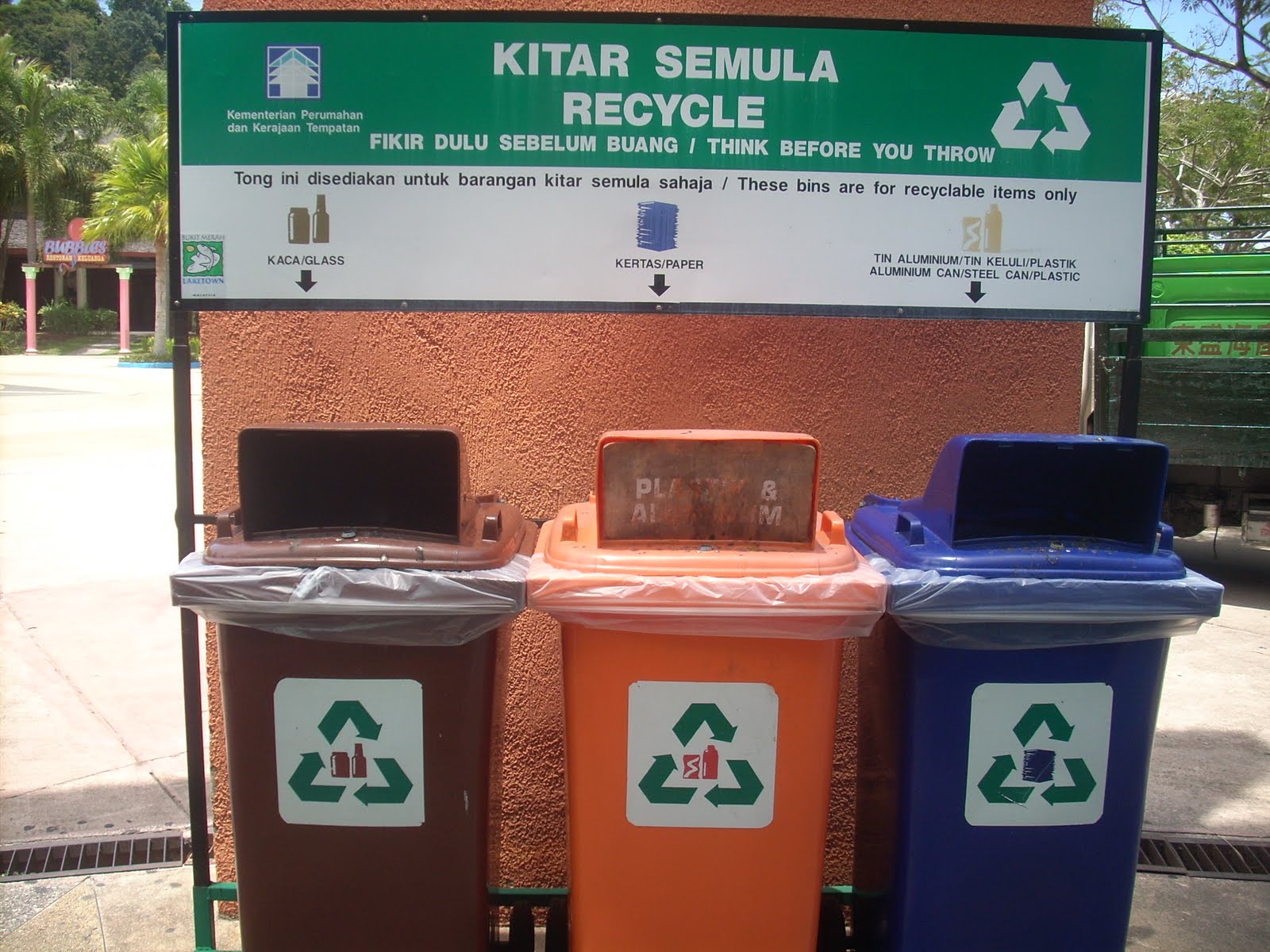You'll Get Fined If The Neighbours In Your Condo Don't Separate Their Rubbish
"The management committees have to be strong and they need to tell them (residents) when we issue compounds, everyone will get it."
All residents living in high-rise buildings risk being fined, even if only one of them fails to separate their rubbish in the communal garbage bins, as per the guidelines of Solid Waste Corporation (SWCorp)
Datuk Abdul Rahman Dahlan teaching young boys how to separate their waste at the Kampung Limau PPR flats
Image via Malay Mail OnlineUrban Wellbeing, Housing and Local Government Minister Datuk Abdul Rahman Dahlan said this could happen as it was a challenge to identify tenants who fail to abide by the new regulation on waste separation, which was fully enforced yesterday.
He said the building’s management played an important role in educating their residents and ensuring they separated their waste.
"The management committees have to be strong and they need to tell them (residents) when we issue compounds, everyone will get it," he said when kicking off the enforcement at Kampung Limau PPR flats.
Asked how the ministry would issue compounds to the occupants of a multi-storey building, he replied, "The building management is responsible for its tenants."
The new law under the Solid Waste and Public Cleansing Management Act 2007 requires residents to separate their solid waste into 'paper', 'plastic', and 'others' before discarding them
The law was implemented yesterday, 1 June 2016 in Kuala Lumpur, Putrajaya, Johor, Melaka, Negri Sembilan, Pahang, Kedah and Perlis.
A report by Poskod Malaysia, revealed that the new collection of waste will follow a 2+1 system that will see dry waste being collected once a week and wet waste twice a week.
What will happen if you fail to follow the new regulations?
As part of the implementation, the local government will compound residents based on the Solid Waste Act 672. The amount of fine will differ based on landed and non-landed property residents:
Landed Properties:
- First offence: RM50
- Second offence: RM100
- Third Offence: RM500
Apartments, condominiums and flats:
- First offence: RM100
- Second offence: RM200
- Third offence: RM500
The new regulation states that the fourth offence would lead to legal actions and if charged, the offender could be fined up to RM1,000.
Urban Wellbeing, Housing and Local Government Minister Datuk Abdul Rahman Dahlan explained that this drastic move is to reduce the exorbitant amount spent by the government yearly on solid waste disposal
Urban Wellbeing, Housing and Local Government Minister Datuk Abdul Rahman Dahlan
Image via Malay Mail OnlineHe said the government currently spends almost RM2 billion a year on solid waste disposal and public cleansing works, which could have been spent on building public amenities such as schools and hospitals.
It would be better if some of the waste did not end up in waste disposal sites but was reclaimed instead, he said.
"My problem with is that most of the garbage will end up in landfills. If we don’t reuse waste where we can, that’s where it ends up."
"Now we have problems looking for waste disposal sites, because every time we find a place, there will be protests from residents saying that this is not the right place and so on. So what we need to do now is to reduce the amount of waste sent to disposal sites, so that they have a longer lifespan," added Rahman.
Rahman also stressed on the importance of increasing the recycling rate to 22% by the year 2020, describing the new regulations as a way of promoting civilisation and better disease control
"I hope the state governments of Penang and Selangor understand that this is more than just cleaning up the state. It is also about disease, it is also about tourism, it is also about being civilised.
"I don't want to force them, since they are the state government. But if they don’t want to use Act 672, at least set up their own mechanisms to ensure that their waste disposal is the best and in accordance to international standards," said Rahman, as reported by Malaysiakini today, 1 June.




